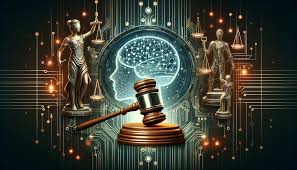AI and Ethics in Criminal Justice
Predictive Policing
AI and Ethics in Criminal Justice: Addressing Bias in Predictive Policing
Introduction
Artificial intelligence (AI) is rapidly changing many aspects of our lives, including the criminal justice system. One of the most controversial applications of AI in this area is predictive policing, which uses algorithms to predict where and when crimes are likely to occur. While predictive policing has the potential to improve public safety, there are also significant ethical concerns, particularly around bias.
AI and Ethics in Criminal Justice
The use of AI in the criminal justice system raises important ethical questions. One of the key areas of concern is the potential for bias in AI algorithms, which can lead to unfair and discriminatory outcomes. For example, an algorithm that predicts crime based on historical data may perpetuate existing racial and socioeconomic disparities if that data reflects past discriminatory practices.
Predictive Policing
Predictive policing uses algorithms to analyze data from various sources, such as crime reports, weather patterns, and social media, to identify areas where crimes are more likely to occur. The goal of predictive policing is to allow law enforcement agencies to allocate resources more effectively and prevent crime.
Bias in Predictive Policing
A major concern with predictive policing is the potential for bias in the algorithms used. These algorithms are trained on historical data, which can reflect existing societal biases. For example, if the data used to train a predictive policing algorithm is based on past police stops, and those stops were disproportionately targeted at people of color, the algorithm may learn to predict crime in areas with larger minority populations, even if there is no actual increase in crime in those areas. This can lead to a vicious cycle of bias, where algorithms perpetuate existing inequalities.
Furthermore, the data used to train predictive policing algorithms may not be accurate or complete. For example, crime data may be underreported in certain communities, or there may be biases in how crimes are categorized. This can further exacerbate the problem of bias in predictive policing.
Summary
- AI is transforming the criminal justice system, including predictive policing.
- Predictive policing has the potential to improve public safety but raises ethical concerns.
- Bias in predictive policing algorithms can lead to unfair and discriminatory outcomes.
- Addressing bias in predictive policing is essential to ensure fairness and justice in the criminal justice system.
